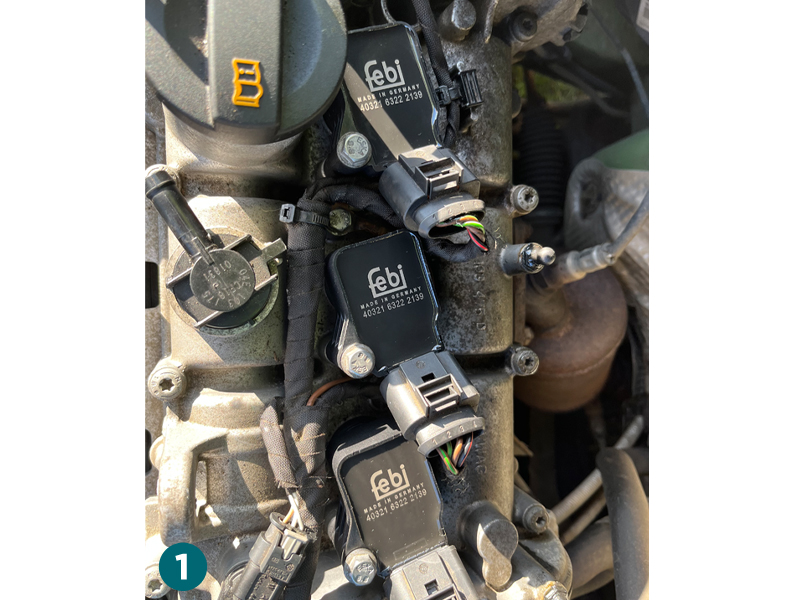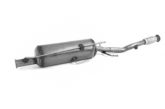
Febi explores an issue affecting various Volkswagen, Audi, SEAT and Skoda models, pertaining to part number 40321.
Problem
The ignition coil has failed, causing the engine to misfire. Due to the ignition timing being controlled individually for each cylinder, the corresponding injector will no longer be activated if an ignition coil stops working. Consequently, a fault code entry will be made in the ‘error memory’ of the engine control unit, relating to cylinder combustion failure and cylinder shut-off, and the EPC warning lamp will illuminate.
Cause
During regular maintenance, the ignition coils need to be removed to gain access to the spark plugs for their replacement. However, due to prolonged engine heat cycles, the rubber insulation of the ignition coil can become ‘bonded’ to the ceramics of the spark plug – resulting in excess force being required to remove the ignition coil. The rubber insulation can then become damaged and split, which can go unnoticed. When a damaged coil is refitted, arcing within the cylinder head can occur. Once again, this is not always immediately apparent.

Solution
After removing the ignition coils from the cylinder head during the spark plug replacement process, carefully inspect the rubber insulation for any splits or damage that could lead to failure. This is highly recommended if the ignition coil has been subjected to excess force when trying to remove them. The coil should then be replaced to reduce the risk of ignition failure and ensure engine reliability. febi ignition coil 40321 is equipped with dielectric grease applied within the rubber insulation tube (Fig.1) which is non-conductive and eases the fitment of the coil as it is inserted onto the spark plug – therefore reducing the risk of it becoming ‘bonded’ to the ceramics of the spark plug for future repair and maintenance of the ignition system.









